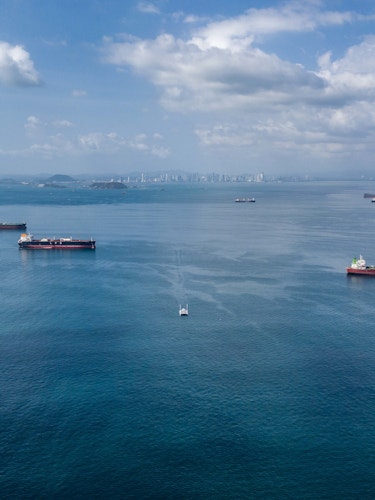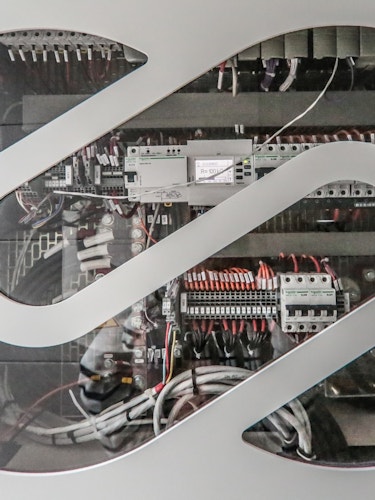
Community-based research programme dedicated to maritime energy transition
In the run-up to the design and construction of a freighter piloted by Energy Observer, studies will be carried out with the T2EM institute to validate the technologies, which will be integrated aboard this versatile cargo ship, whose dimensions are representative of a third of the global fleet currently in operation. This joint research work will be shared with the science community under the aegis of the Energy Observer Foundation.
Focus area
1 Act for energy transition
Progression of the project
More project information
Problem
Reducing maritime transport’s carbon footprint
The eco-energy transition is key to achieving carbon neutrality. In the maritime sector, satisfying the objectives of the International Maritime Organisation requires the launch of carbon-neutral vessels within the next 10 years (between 2025 and 2030) together with the development of a decarbonised energy distribution network within the same time frame.
It’s an essential road map at a time when international freight is responsible for 3% of greenhouse gas emissions.

© Energy Observer Productions | Marta Sostres
Petrochemical plants in the port of Antwerp
Response
Working together to develop tomorrow’s clean maritime transport
As the first hydrogen-powered vessel to be self-sufficient in energy with zero emissions, Energy Observer has naturally joined the Maritime Eco-Energy Transition Institute (TE2M) alongside the French maritime cluster, the Ministry of the Sea, ADEME (French Environment and Energy Management Agency) and the companies Bourbon, Brittany Ferries, Naval Group, Bureau Veritas, Chantiers de l’Atlantique, Corsica Linea, Engie, La Méridoniale, Leyton, Sogestran, Soper and Total Energie.
This coalition’s partners and protagonists of the ecosystem are working on new decarbonised energy mixes and their supply chains, new designs and solutions geared towards energy efficiency, digital and simulation software, as well as new business models, which will be key to the success of the transition.
Announced at the Maritime Economy Congress 2021 in Nice, a new phase of work aims to consolidate a genuine French ‘0-emission Vessel & Port’ programme in keeping with the work carried out by the Sector Strategic Committee for Marine Industrialists, CORIMER as well as the French Port Strategy, as a continuation of the Fontenoy du Maritime approach.
The goal is to bring to the surface technologies, products and services supported by France’s national protagonists to take advantage of any future technological breakthroughs for the benefit of economic activity and the sector’s regional employment.

© Energy Observer Productions | Antoine Drancey
Energy Observer seen from above
Impact
Designing a versatile cargo ship for commercial transport
The community-based research we’re working on within the context of this joint venture, with Air Liquide in particular, will notably focus on the proportioning of the hydrogen tanks, the marinisation of existing components for other heavy transport, weight optimisation, risk management, the development of routing software, the treatment of waste and the most suitable methods of propulsion.
Energy Observer’s aim is to design, build and develop a new vessel, which will be a versatile cargo ship equipped with breakthrough technologies and on-board systems, as yet untested on a vessel of this size.

© Energy Observer Productions
Technologies on board
